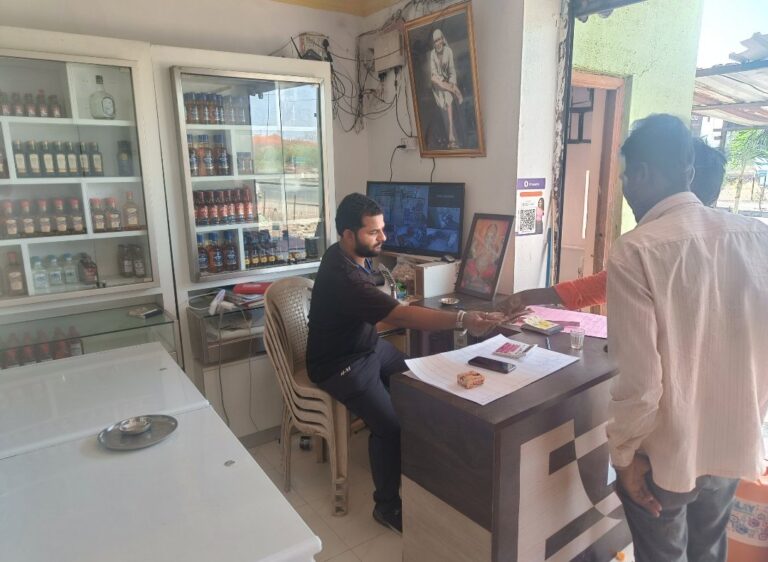How is the life of a national highway bar and restaurant owner in India
Often, as we travel, we come across numerous bars lining the national highways. It’s natural for us to ponder upon the owners of these establishments and form an impression that they are profiting at the expense of people’s well-being. We might perceive them as inconsiderate, perhaps even lacking empathy, showing little regard for those around them.
During my cycling tour across India, an intriguing encounter awaited me as I was flagged down by a roadside bar owner, gesturing if I required water. I decided to stop and engage in a conversation with him. This exchange shattered my preconceived notions about the typical persona associated with bar owners. Sagar Jaiswal a 25 year young individual proved to be compassionate and displayed genuine concern for those in need. Through our dialogue, I gained valuable insights into the realities of running a bar in India and the inner workings of a bar owner’s mindset.
Table of Contents
ToggleBusiness runs in the family
Sagar has three siblings, one of whom works with him while another runs a water distribution business. Sagar himself has only completed the 10th grade. Their father used to own a restaurant, but due to negative influences, he had to sell it off. He then opened a pan shop, but unfortunately, it didn’t do well. Tragically, their father suffered a heart attack and passed away. In the face of these challenging circumstances, Sagar took over the pan business.
As sustaining the pan shop became increasingly difficult, Sagar decided to open a food cart where he sold omelettes on the streets from 2013 to 2017. Afterward, he joined a country liquor shop as a bar manager, where he gained valuable experience and knowledge in the business.
Sagar mentioned that liquor businesses are typically managed by individuals like Jaiswal in Maharashtra. Since liquor licenses are rarely granted in villages due to low tax collection, people usually set up bars on highways near the villages, where most customers are villagers themselves. Consequently, Sagar had to move 300 km away from his hometown for this venture.
Drawing from his experience managing the country liquor shop, Sagar recently opened his own liquor shop just three months ago. This establishment is a bar and restaurant with eight rooms and one hall. He confidently stated that he has been able to run the business successfully, thanks to the accumulated experience he has gained over the years.
Hotel New Payal
During a casual conversation, I inquired about the room rates. Sagar mentioned that although he charges 700 rupees per day, he is willing to offer a discounted price for those in need. In fact, he even expressed his willingness to provide a room for free if someone truly requires it. This response sparked my curiosity, leading me to ask further questions that revealed other aspects of his character.
Life of a bar and restaurant owner
During my conversation with Sagar, I discovered that he abstains from drinking and discourages others from doing so as well. He shared an interesting perspective, mentioning that the person who sells sweets doesn’t consume them. If a bar owner were to start drinking, it would result in the closure of their establishment.
Beyond his involvement in the bar business, Sagar revealed a completely different side of himself. He actively engages in social work, particularly in assisting the poor and needy. He passionately described numerous instances where he dedicated his efforts to improve the lives of those around him.
During the COVID-19 pandemic, when few people showed concern for those on the streets, Sagar took it upon himself to distribute food to the impoverished daily. He strongly opposes wasting food and has implemented measures in his small town, Newasa Fata, to ensure that food is not squandered. He proactively encourages people to donate excess food, which he collects and distributes to those in need at bus stands and railway stations. In a heartwarming gesture, when a friend resolved a longstanding issue, Sagar advised him to set aside a small portion of the money to distribute sweets to the underprivileged on the streets instead of treating friends to drinks.
Curious about his motivation for his societal contributions, I asked Sagar why he engaged in such acts. He promptly rejected the notion that it was considered a service to society. According to him, society tends to focus on what is lacking rather than appreciating the efforts made. He emphasized that his actions were driven by a desire to seek blessings from the less fortunate.
Among the many endeavors Sagar had undertaken, he also noticed that cows in the village were frequently injured due to accidents on the highway. In response, he took the initiative to have radium reflectors installed on their horns, thus preventing such mishaps.
Sagar struck me as a man of principles that contradicted his profession. Eager to gain deeper insight into his mindset, I seized the opportunity to ask him thought-provoking questions.
Justifications
Sagar believes in allocating 30% of his resources to help those in need, especially the poor. Instead of giving money, he prefers to provide essential items, food, or engage in activities like blood donation. He said that he finds joy in helping the ones in need.
Validations
Sagar said that the only thing that matters to him is the well-being and happiness of his family. The help he extends to the poor is to seek blessings from them.
Complaints
Sagar reminisced about the time when his father was alive and how they used to receive everything they desired, such as a phone, without hesitation. However, since his father’s passing, he has become more cautious and selective in his choices, only acquiring items that are necessary. Remembering this change in circumstances brought tears to his eyes, and he swiftly redirected the conversation to avoid dwelling on the topic.
Materialism
Sagar’s materialistic focus revolves around providing for the needy as he said that his family already has enough for food and shelter and that nothing more was needed.
Sagar’s message encourages continued acts of kindness towards others. He believes in consistently doing good deeds and also expresses his support for the concept of Hindutva.
Sagar had unconventional ideologies that defied my expectations. Despite his occupation, he displayed contentment and didn’t actively encourage alcohol consumption. Moreover, he went beyond mere profit-making, demonstrating a genuine willingness to assist those in need. His actions indicated that his profession was primarily a means of generating income rather than harboring any ill intentions.
For more of such articles, head to the homepage and subscribe to my newsletters.
I am a 31 year young PhD graduate who has decided to travel the length and breadth of India on my cycle, to document the journey of meeting a vast array of people. In my journey, I intend to understand the characteristic features of the people of this nation and categorize them based on their demographics, age, profession, gender, traditions, and cultural differences.




A gentle reminder that we should not judge a book by its cover